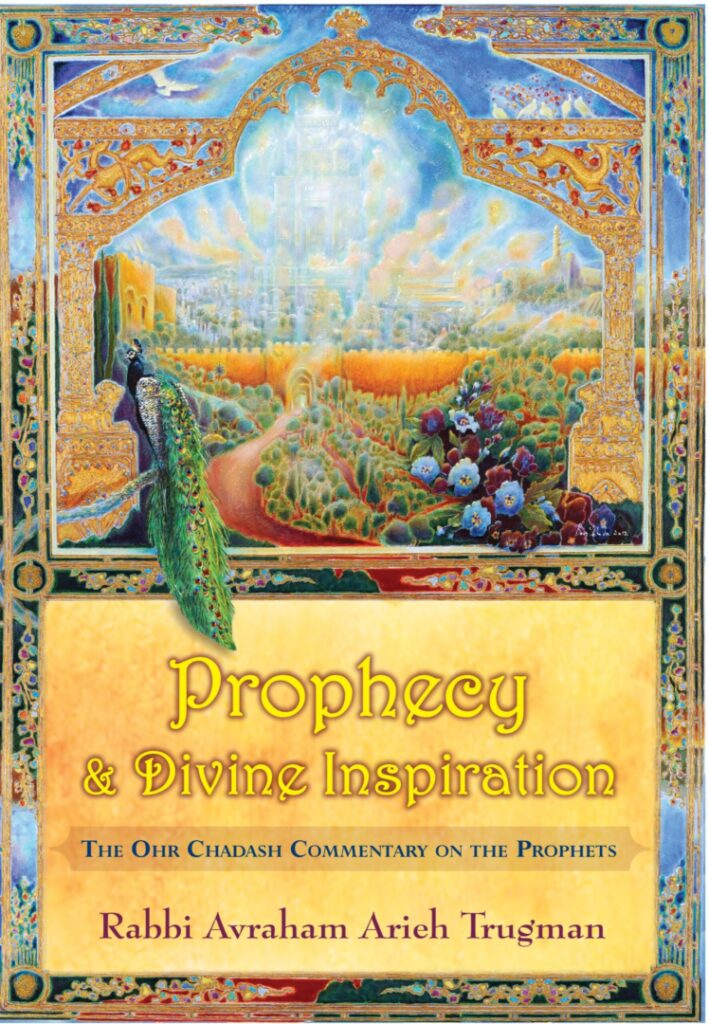The Ohr Chadash Commentary on the Prophets
Hard Cover, 496 pages
As mankind struggles with the challenges of the twenty-first century, the words of the prophets stand ever-ready to guide and inspire, to warn and to cajole, to plead and to cry out. This is especially true today when so many of the prophecies of old are literally coming true before our very eyes. Prophecy and Divine Inspiration brings the historical era and the inner experience of the prophets to life for the contemporary reader, revealing the deeper significance of their teachings in a personally relevant manner. In so doing, this comprehensive text demonstrates that the means by which the prophets, mystics, sages and rabbis throughout history have achieved prophetic experience and Divine inspiration are as available today as they were in the past
DONATE AT LEAST $28
RECEIVE PROPHECY & DIVINE INSPIRATION
YOU CAN ORDER HERE A PDF VERSION BY DONATING $12.
Important: Please make sure to include your mailing address by leaving a note in the PayPal order form!
(Orders outside Israel & USA please add $18 (including Canada); Australia, New Zealand, the Far East and South America please add $25)



